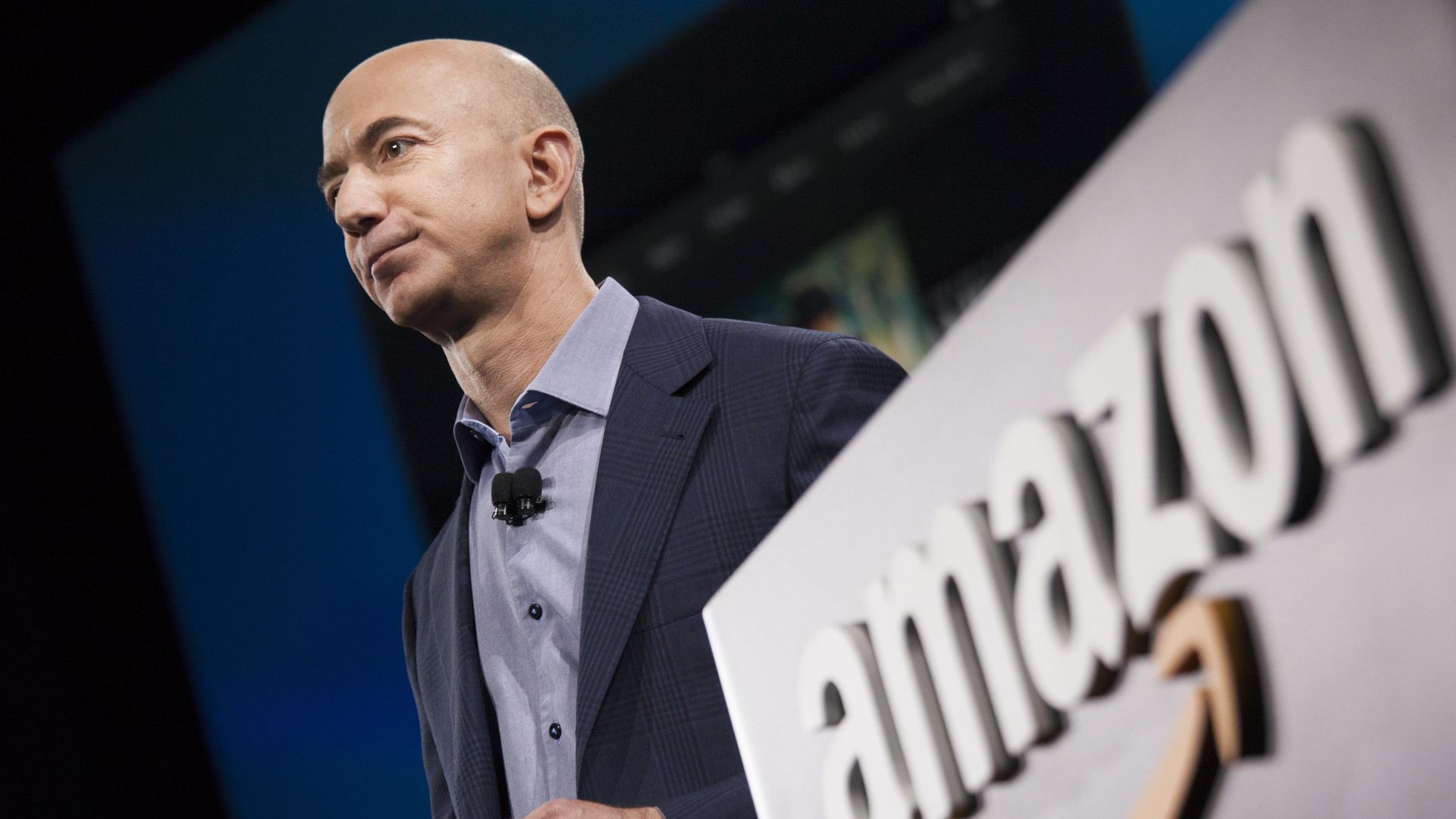Amazon and antitrust
Add Axios as your preferred source to
see more of our stories on Google.

Jeff Bezos. Photo: David Ryder/Getty
Concern about antitrust action from Washington may be influencing how Amazon selects its much-sought new headquarters — specifically pushing it to favor the D.C. area. We asked legal scholars whether the government actually has a case against Amazon — as President Trump has threatened — and what antitrust action would look like.
The backdrop: One of the leading thinkers on an Amazon breakup is Lina Khan, author of a seminal paper called "Amazon's Antitrust Paradox" while at Yale Law School. Khan argues that antitrust laws that focus on prices are ill-equipped to address Amazon's market power.
- Even if the e-commerce giant keeps prices very low and customers very happy, Amazon's mountains of data on shoppers, and its dominance across a multitude of industries give it outsize influence that is anti-competitive, Khan writes.
- That's precisely what European Union regulators are probing: whether Amazon's consumer data gives it an inherent — and unfair — advantage over rivals.
"If the [U.S.] agencies investigate, they will focus on the questions raised by specific conduct; for example, the use of leverage to exclude rivals, keep them at bay, and entrench market power by doing so."— Eleanor Fox, antitrust law expert and professor at NYU
But some legal experts tell Axios that Amazon is in the clear:
"The two most antitrust common complaints about Amazon concern low prices and acquisitions. As to the former, the fact that Amazon grew for many years while not running company-wide profits most likely reflects consumer-friendly but lawful prices and aggressive investment in product improvements and new lines of business. The public criticisms fall far short of demonstrating a pattern of unlawfully low prices. As to acquisitions, I am not aware of any instance in which Amazon has obtained market power by merger or acquisition."— Doug Melamed, antitrust law professor at Stanford
